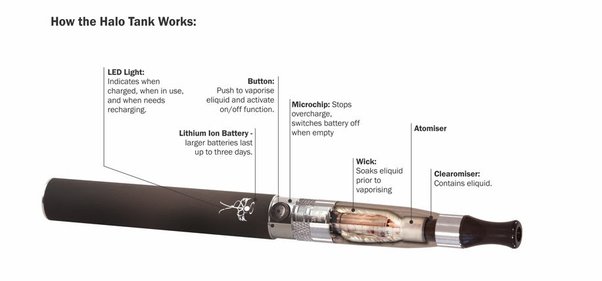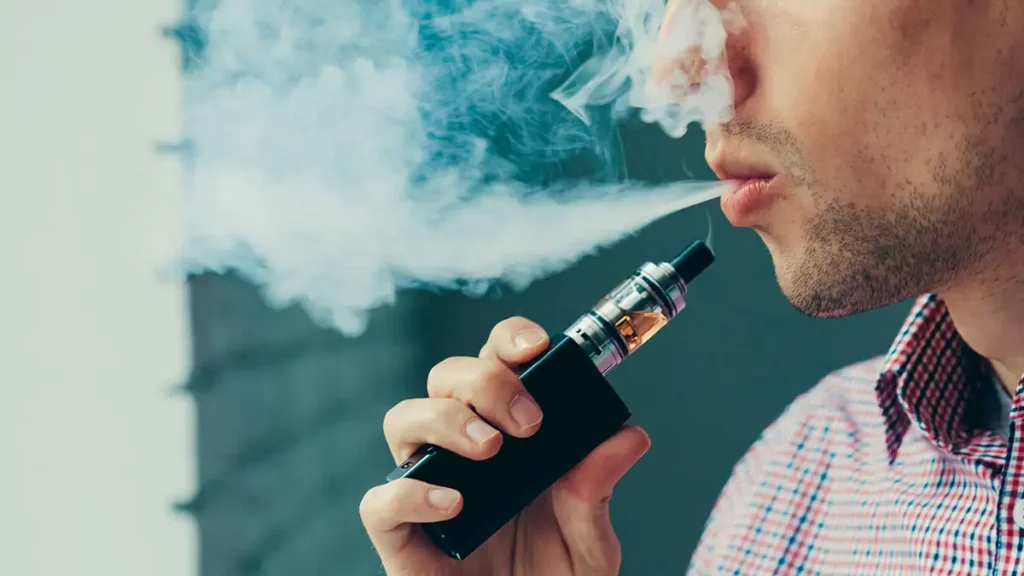The removal of your wisdom teeth can be a painful and uncomfortable experience for many, especially during the recovery period when you are experiencing swelling. If you’ve just had your wisdom teeth removed, you’re probably looking for ways to ease the discomfort and speed up the recovery process. This may include the use of ice packs, painkillers, and even ice cream.
While there are many recommended practices, vaping, whether it’s tobacco or cannabis, might not be one of them. That’s not to say you can’t vape after wisdom teeth removal, but there are several considerations you should be aware of to prevent complications. You should also know that you should not vape at least 72 hours after your wisdom teeth surgery
In the rest of this article, we will look at what you need to know when vaping after the surgery. From the risks associated with dry socket to the impact of nicotine on healing, we’ve got you covered. With these knowledge, you will be able to make an informed decision on when and how to return to vaping after your wisdom teeth removal surgery.
What is Vaping?
Vaping is the act of inhaling a vapor that is produced by an electronic device called an e-cigarette or a vape pan. These devices contains a chamber that houses a liquid known as e-liquid, or vape juice. This liquid is a mixture of ingredients such as propylene glycol (PG), vegetable glycerin (VG), flavorings, alcohol, sweeteners, and nicotine.
Unlike traditional cigarettes, which burn tobacco to produce harmful smoke, vaping devices do not produce smoke. Instead, a mist or aerosol is produced by the vaporization of the vape liquid and inhaled into the lungs by the user, akin to the process of smoking a cigarettes.

Over the past few years, vaping has gained immense popularity as it has been perceived as a safer alternative to traditional smoking. However, it’s important to note that the vapor can still contain harmful and potentially harmful substances, including nicotine, which is highly addictive. In fact, it was used as a smoking cessation tool, offering smokers a ‘healthier’ method to wean off traditional cigarettes.
However, its variety of flavors and modern looking design have attracted a demographic far beyond those seeking to quit smoking, particularly young people. This have led to concerns across nations, with fears that the negative impact of nicotine and the addiction to vaping may cause more harm to the population than the traditional cigarettes. As such, many countries have imposed local regulations to restrict or ban vaping.
You may be interested in: When Do Wisdom Teeth Exactly Come in?
What Are the Impact of Vaping?
The impact of vaping on individual and public health, in both the short and long term, is a contentious topic that is still under rigorous examination. However, there are several potential impacts associated with vaping that have been identified. Here are some key points:
- Health Risks: While vaping is often considered a less harmful alternative to smoking traditional cigarettes, it is not risk-free. The inhalation of aerosols produced by e-cigarettes can expose users to potentially harmful substances such as nicotine, heavy metals (like lead), volatile organic compounds, and flavoring chemicals. Recent studies have linked vaping to various health problems, including long-term coughing, lung disease, heart disease, and stroke.
- Nicotine Addiction: Many e-liquids contain nicotine, which is highly addictive. Regular use of nicotine-containing e-cigarettes can lead to nicotine dependence, similar to traditional tobacco products. This addiction can have various health and behavioral implications.
- Secondhand Vaping: The aerosols emitted by e-cigarettes can expose bystanders to potentially harmful substances. While the extent of these risks is still being studied, there are concerns about the impact of secondhand vaping on respiratory health.
- Gateway to Traditional Smoking: There is evidence suggesting that vaping can serve as a gateway to traditional cigarette smoking, particularly among young people who have not smoked before. While not all e-cigarette users go on to smoke regular cigarettes, the correlation between vaping and subsequent tobacco use is a concern to many.
It is important to note that research on vaping is still evolving, and the long-term effects may not be fully understood at this time. However, based on the available evidence, it is generally recommended to approach vaping with caution, particularly for non-smokers and youth. If you have concerns about vaping or nicotine addiction, it’s best to consult healthcare professionals for personalized advice.
What to Know When Vaping After Wisdom Teeth Removal?
After a wisdom teeth extraction, it’s crucial to take proper care of your mouth to prevent complications. Most oral surgeons and dentists strongly advise against vaping or smoking after oral surgery, at least for the first 72 hours, and ideally for a week.
The most significant risk of vaping after wisdom teeth removal is developing a painful complication known as ‘dry socket.’ This occurs when the blood clot that forms after extraction, which is crucial for healing, gets dislodged. When this happens, the underlying jawbone and nerves are exposed to the air and food in the mouth. This can lead to an intense pain and potentially infection. The sucking action required for vaping can cause this dislodgement.
Secondly, nicotine, which is a vasoconstrictor, can narrow your blood vessels. This can slow down the healing process as it reduces the blood supply to the surgical area. Nicotine can also decrease the production of red and white blood cells, which are critical for wound healing and fighting off infections.
Thirdly, some of the chemicals in the vape liquid could potentially interact with medications you’re taking after surgery, such as painkillers or antibiotics. This can reduce the efficacy of the medication, disrupting the recovery of the surgical site.
Last but not least, vaping can cause dry mouth. After your wisdom teeth removal surgery, it is important to keep your mouth moist. Saliva plays a vital role in the mouth’s natural healing process and helps prevent infections. A dry mouth due to vaping can disrupt this process and increase your risk of complications such as an infection.
How to Vape After Wisdom Teeth Removal?
If you have received clearance from your oral surgeon or dentist to vape after wisdom teeth removal, here are some guidelines to follow:
- Wait Till Wound is Healed: Even after you have received approval from your oral surgeon or dentist, it is advisable that you wait at least 72 hours to a week after the surgery. This gives time for your wound to heal and reduces the risk of dry socket.
- Choose Nicotine-Free E-Liquids: To minimize potential medical complications, consider the use of nicotine-free e-liquids. Opting for nicotine-free options reduces the risk of impeding blood flow to the surgical site and ensures that the healing process is not affected by vaping.
- Avoid Suction: When vaping, try to avoid creating excessive suction or negative pressure in your mouth. Suction can dislodge blood clots that have formed in the extraction sites, leading to dry socket. Take gentle draws and avoid forcefully inhaling the vapor.
- Adjust Inhalation Technique: Instead of drawing the vapor directly into your mouth and lungs as you would with deep inhalation, try a more shallow and gentle inhalation technique. This can help minimize the risk of disturbing the surgical sites while still allowing you to enjoy the vaping experience.
- Monitor Discomfort: Pay close attention to how vaping affects your comfort level and the healing process. If you experience increased pain, swelling, bleeding, or any other unusual symptoms after vaping, discontinue vaping immediately and consult your oral surgeon or dentist as it may be signs that you are experiencing dry socket.
Always follow the specific instructions and guidance provided by your oral surgeon or dentist regarding vaping after wisdom teeth removal. They have the best knowledge of your case and can provide personalized advice based on your individual circumstances.
You may be interested in: Is It Possible to Have 8 Wisdom Teeth and Why?
Concluding Thoughts
To sum it up, remember that vaping after wisdom teeth removal requires careful consideration and precaution. While some may argue that it’s a safer alternative to smoking, the potential risks tied to the suction movement and chemical exposure still persist. These risks can lead to complications such as dry socket, infection, and delayed healing process that can significantly affect your overall oral health.
By adhering to the precautions outlined and seeking professional advice, you can minimize potential risks, support the healing process, and ensure a smoother recovery.
In fact, it is worthwhile to consider using the recovery period after your surgery to quit the habit altogether. Remember, your oral health is paramount, and the choices you make can greatly impact it. So, be sure to make informed decisions, prioritizing your health above all else.







